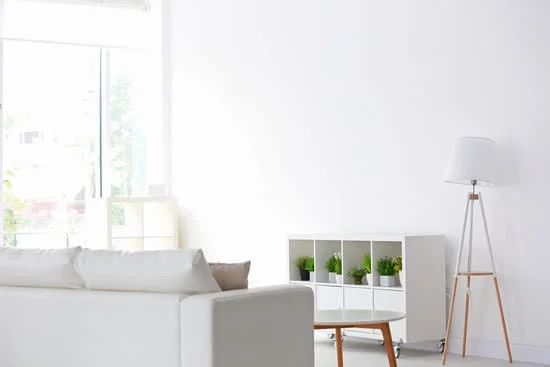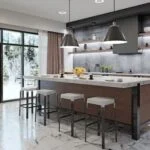Are you interested in learning how to combine real estate and home decor business? As the real estate market continues to evolve, there is a growing trend of professionals integrating home decor services with their real estate ventures. This article will explore the strategies and tips for merging these two industries to create a successful and profitable business.
The integration of real estate and home decor business has become increasingly popular as it offers a unique opportunity to provide comprehensive services to clients. By understanding the current trends in the real estate market and having a keen eye for potential properties, entrepreneurs can capitalize on the demand for both buying/selling properties and enhancing them with stylish home decor.
In this article, we will delve into various aspects of combining real estate and home decor business, including market research, property identification, supplier networking, home staging tips, marketing strategies, legal considerations, and real-life success stories. Whether you are a seasoned real estate professional looking to expand your services or an aspiring entrepreneur interested in breaking into these industries simultaneously, this comprehensive guide will provide valuable insights into navigating this growing trend.
Understanding the Real Estate Market
In order to successfully combine real estate and home decor business, it is essential to have a deep understanding of the current real estate market trends. Researching and analyzing the market will give you valuable insights into what buyers are looking for in a property, as well as which areas are showing potential for growth and investment.
One key aspect of understanding the real estate market is keeping up-to-date with housing market reports, sales data, and economic indicators. This information can help you identify emerging trends, such as the demand for eco-friendly homes or the rise in popularity of certain neighborhoods.
Additionally, it is important to consider factors such as interest rates, mortgage availability, and local employment rates when analyzing the real estate market. All these elements can have a significant impact on both the buying and selling aspects of real estate, as well as influence home decor trends. By staying informed about these trends and factors, you will be better equipped to identify properties with renovation or home staging potential that align with current market demands.
Lastly, networking with other professionals in the real estate industry can also provide valuable insights into market trends. Attending industry events, joining professional associations, and connecting with experienced real estate agents can help you stay informed about local market conditions and get a feel for what potential buyers are looking for in a property.
| Real Estate Market Data | Trends Analysis |
|---|---|
| Local housing market reports | Identifying emerging trends |
| Interest rates & mortgage availability | Influence on buying and selling aspects |
| Employment rates & economic indicators | Impact on home decor trends |
Identifying Potential Properties for Renovation or Home Staging
When looking for potential properties for renovation or home staging, it is essential to have a keen eye for detail. One of the first things to look for is the location of the property. Properties in desirable neighborhoods or up-and-coming areas are often prime candidates for renovation and staging, as they tend to attract more potential buyers.
It’s also important to consider the size and layout of the property. Homes with an open floor plan or a good flow between rooms can be easier to stage and renovate.
Another key factor to consider is the condition of the property. Look for homes that may need cosmetic updates rather than major structural renovations, as these are generally more cost-effective. Additionally, pay attention to curb appeal. A well-maintained exterior can make a significant difference in a property’s attractiveness and its potential value after renovations.
Furthermore, consider properties that have been on the market for an extended period. These properties may benefit from some refreshing or staging to make them more appealing to potential buyers. Researching local real estate trends and working closely with real estate agents can also provide valuable insights into what buyers are looking for in a home, helping you identify properties with renovation or home staging potential.
| Tips | Considerations |
|---|---|
| Desirable location | Prime candidates for renovation and staging |
| Size and layout | Homes with an open floor plan are easier to stage and renovate |
| Condition of the property | Cosmetic updates vs major structural renovations |
Building a Network of Suppliers and Contractors
Combining a real estate and home decor business involves not only understanding the market and effectively staging properties but also building a network of reliable suppliers and contractors for home decor projects. Here are some tips on finding the right partners for your business:
- Research and referrals: Start by researching suppliers and contractors in your area who specialize in home decor or renovation projects. Ask for referrals from other industry professionals or friends who have experience working with these types of businesses.
- Quality over cost: When selecting suppliers and contractors, prioritize quality over cost. It’s important to work with companies and individuals who provide high-quality materials and services, even if it means paying a bit more.
- Build relationships: Take the time to meet with potential suppliers and contractors in person. Building strong relationships with them can lead to better pricing, priority service, and a smoother working relationship.
Once you’ve established your network of suppliers and contractors, it’s important to maintain open communication and manage these relationships effectively. Consider implementing regular check-ins or meetings to ensure that everyone is on the same page and to address any issues that may arise.
In addition, having a reliable network of suppliers and contractors can be a valuable selling point for your real estate business. Being able to offer top-notch renovation or staging services as part of your overall package can set you apart from other agents or businesses in the industry. With a solid network in place, you can confidently take on new projects knowing that you have the support of trusted partners behind you.
Home Staging Tips for Real Estate Agents
Setting the Stage
When it comes to selling a property, first impressions are everything. This is where home staging comes in. Home staging is the process of preparing a property for sale by making it look as appealing as possible to potential buyers. By creating an inviting and attractive environment, you can increase the perceived value of the property and potentially sell it faster.
Depersonalize and Declutter
One of the key principles of home staging is depersonalizing the space. This means removing personal items such as family photos and religious or political decor, so that potential buyers can envision themselves living in the space. Additionally, decluttering the space will make it look more spacious and organized. Consider renting a storage unit to temporarily store excess furniture or belongings.
Highlight Key Features
Another important aspect of home staging is to highlight the key features of the property. Whether it’s a beautiful fireplace, high ceilings, or a stunning view, make sure these focal points are showcased in their best light. Use strategic lighting, furniture placement, and accessories to draw attention to these features.
By effectively staging a property for an open house or showing, real estate agents can significantly increase their chances of selling the property quickly and at a desirable price. Remember that first impressions are crucial in real estate, and home staging plays a huge role in creating a positive impression on potential buyers.
Marketing and Branding Your Real Estate and Home Decor Business
Combining a real estate and home decor business can be an exciting venture, but it’s important to have a solid marketing and branding strategy in place to effectively reach your target audience. Here are some strategies for effectively marketing and branding a combined business:
- Identify your target market: Understand the demographics and preferences of your ideal customers. Are you targeting first-time homebuyers? Empty nesters looking to downsize? Understanding your target market will help you tailor your marketing efforts to appeal to their specific needs and desires.
- Create a cohesive brand: Develop a brand identity that reflects the seamless integration of real estate and home decor services. Your logo, color palette, and overall aesthetic should convey the message that you offer both professional real estate services and expert home decor solutions.
- Utilize digital marketing: In today’s digital age, having a strong online presence is crucial. Leverage social media platforms, create an engaging website, and consider investing in targeted online advertising to reach potential clients. Showcasing before-and-after photos of staged properties or successful renovation projects can be particularly compelling for attracting new clients.
Implementing these marketing strategies will help position your combined real estate and home decor business as a trusted and reliable source for all aspects of the home buying, selling, and decorating process. By understanding your target market, creating a cohesive brand identity, and leveraging digital marketing channels, you can effectively promote your unique business model to potential clients.
Legal and Financial Considerations
The combination of a real estate and home decor business can be a lucrative venture, but it also comes with its own set of legal and financial considerations that need to be carefully managed. Understanding the legal and financial aspects of this combined business is crucial for ensuring its success and longevity.
Legal Considerations
When combining a real estate and home decor business, it’s important to consider the legal implications of operating in both industries. This may include obtaining the necessary licenses or permits to operate as a real estate agent or home decor service provider. Additionally, there may be zoning laws or regulations that need to be adhered to when staging properties for sale or conducting renovation projects.
It’s also essential to have a clear understanding of the legal responsibilities related to property transactions, contracts, warranties, and liabilities. Working with a qualified attorney who understands both the real estate and home decor industries can help navigate through these legal complexities.
Financial Considerations
From a financial perspective, combining these two businesses requires careful planning and management. It’s important to create separate budgets for each aspect of the business – real estate transactions, property renovations, home staging services, interior design products, marketing expenses, etc.
Additionally, determining how revenue will be generated from both sides of the business is crucial. Will it be through commissions on real estate transactions, fees for home staging services, product sales from the home decor side of the business? Understanding the cash flow dynamics is essential for financial sustainability.
Ensuring proper insurance coverage for both aspects of the business is also vital. From liability insurance for property renovations to professional indemnity insurance for offering design services, having adequate coverage can protect against potential risks and liabilities.
By carefully addressing these legal and financial considerations when combining a real estate and home decor business, entrepreneurs can set themselves up for success in this emerging industry.
Case Studies and Success Stories
Real-life examples of businesses successfully combining real estate and home decor services can provide valuable insight and inspiration for entrepreneurs looking to enter this market. One such success story is the case of a real estate agent who also runs a home decor business. By leveraging their knowledge of the local real estate market, this entrepreneur identified properties with renovation potential and used their home decor expertise to transform these spaces into desirable homes.
Another example is a company that specializes in staging homes for sale. This business not only offers traditional real estate services but also provides home decor consultation and staging services to help sellers present their properties in the best possible light. By combining these two offerings, the company has been able to attract more clients and achieve higher selling prices for their listings.
Additionally, there are successful interior design firms that have expanded their services to include real estate consultation. These firms assist clients in not only designing their dream homes but also in finding and purchasing the perfect property to make those dreams a reality. By offering a one-stop shop for both design and real estate needs, these firms have carved out a unique position in the market and attracted a loyal client base.
These case studies illustrate the potential for synergy between real estate and home decor businesses. By understanding how these successful businesses have integrated these two industries, entrepreneurs can gain valuable insights into how they can effectively combine real estate and home decor services to create a thriving business of their own.
Conclusion
In conclusion, the combination of real estate and home decor business presents a promising future and significant potential for growth in the industry. As the housing market continues to evolve and demand for unique, well-staged properties increases, there is a growing need for businesses that can seamlessly integrate both real estate and home decor services. The success stories and case studies presented throughout this article demonstrate the viability and profitability of such a venture.
With the right research, analysis, and networking, entrepreneurs can identify properties with renovation or staging potential, connect with reliable suppliers and contractors, effectively stage properties for open houses or showings, and develop successful marketing strategies to promote their combined business. By understanding the legal and financial considerations involved in this type of venture, individuals can navigate potential challenges and set themselves up for long-term success.
As more businesses emerge that successfully combine real estate and home decor services, the industry is likely to continue expanding. The ability to offer comprehensive services that enhance the value of properties while also meeting the aesthetic preferences of buyers will become increasingly important.
With dedication, creativity, and strategic planning, entrepreneurs in this field have a unique opportunity to thrive in an ever-evolving market. Overall, combining real estate and home decor business not only offers lucrative prospects but also allows professionals to make a positive impact on the way people experience buying or selling a home.
Frequently Asked Questions
Can Real Estate and Interior Design Combine?
Real estate and interior design can definitely combine, especially in the context of buying, selling, or renting properties. Many real estate professionals collaborate with interior designers to stage homes and showcase their full potential to potential buyers or tenants. This collaboration helps enhance the overall value of the property and make it more attractive to buyers or renters.
How Are Real Estate and Interior Design Connected?
Real estate and interior design are connected through the concept of creating desirable living spaces. When a property is put on the market, its interior design plays a crucial role in attracting potential buyers or tenants.
A well-designed and aesthetically pleasing space can significantly increase the value of a property. Similarly, when designing interiors, consideration is given to factors like location, neighborhood, and property value.
How Do I Start a Career in Home Decor?
To start a career in home decor, one could consider pursuing formal education in interior design or related fields. This could involve obtaining a degree from an accredited institution or completing specialized courses in home decor and design.
Gaining hands-on experience through internships or apprenticeships with established designers can also be valuable. Building a strong portfolio showcasing your work is essential for impressing potential employers or clients when starting out in this field.

I’m thrilled to be your companion on this exciting journey through the world of home decor and design. With a passion for turning houses into homes and a keen eye for the finer details, I’m here to help you transform your living spaces into beautiful, functional, and meaningful havens.





